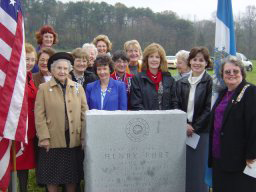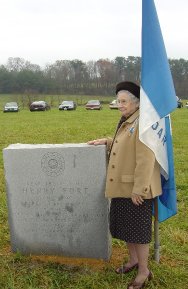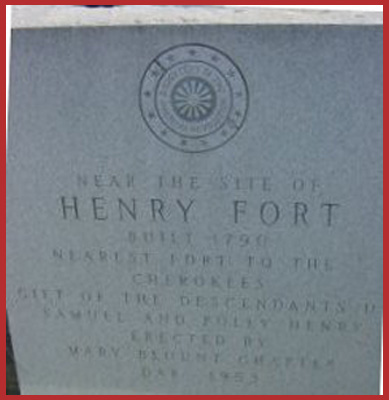Fort Henry, built in 1790, was the nearest fort to the Cherokees. The original Fort Henry Marker was placed by the Mary Blount Chapter in 1953 on US 411, about eight miles south of Maryville, Tennessee. The marker was a gift of the descendants of Samuel and Polly Henry. When this highway was widened a few years ago, the marker mysteriously disappeared.
During the process of photographing the markers for this web site, Regent Mary Nell Clevenger visited the Maryville Monumental Works to ask about marker cleaning techniques. The owner surprised her by saying, “I have one of your chapter markers!”
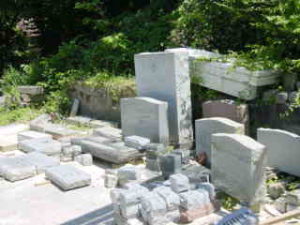
During the road widening, the marker had been damaged and the Tennessee Department of Transportation had taken the broken monument to the Maryville Monumental Works and ordered a duplicate marker to replace the broken one. The chapter was never told and no one ever returned to tell the company where to reinstall it. The photo at right shows the marker as it appeared in August 2003, in the back lot of the Maryville Monumental Company.
The Fort Henry Marker was moved from the back lot of the monument company to the property originally part of the Samuel Henry land grant, eight miles south of Maryville on Highway 411.
A formal Marker Rededication was held in November 2003. Pictured below are four direct-descendants of Samuel Henry who built the fort in 1790.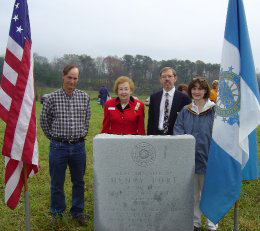
If it were not for this web site project, this marker would probably have remained in the back lot of the monument company for many more years.
